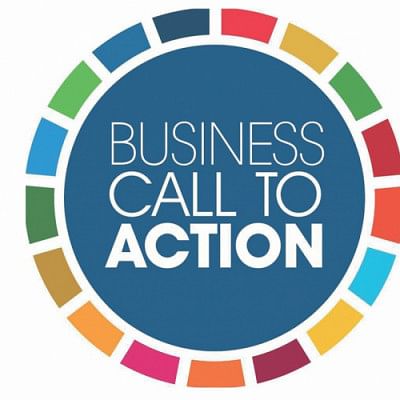Firms being equipped to build inclusive business models

When we talk about support for the bottom of the economic pyramid, our endeavours might seem somewhat myopic. Financial aid can only help to an extent. As for corporate social responsibility, one might argue it's just another form of charity that is not systematic or sustainable in the grander scheme of things.
So, there has been a surge in restructuring efforts in modifying operations, products, and services of businesses in such a way where disadvantaged people can be catered to through decent work and access to essential goods and services.
One such initiative is Business Call to Action (BCtA) launched at the UN in 2008 to accelerate the Sustainable Development Goals (SDGs) by “challenging companies to develop inclusive business models, which engage people at the base of the economic pyramid – people with less than $10 per day in purchasing power in 2015 US dollars – as consumers, producers, suppliers, distributors of goods and services and as employees.”
The BCtA stresses the importance of an inclusive business model that benefits low-income communities by including them in an organisation's value chain in a sustainable way. More than 200 companies have been included as BCtA members worldwide with the support of the UNDP.
There are organisations in our country which have proved that it is possible to do inclusive business through commercially viable initiatives involving low-income individuals as consumers, producers, suppliers, distributors and employees.
In Bangladesh, the UNDP Innovation Hub is rolling out the initiative and member companies are impacting 21.6 million people through their core business across the SDGs.
Garment manufacturer DBL Group is one such member company in Bangladesh. The group joined the BCtA in 2016 and has pledged to provide more than 30,000 of its employees with access to affordable basic household food and health items.
Employees of DBL were finding it difficult to work or live in the remote locations of the manufacturer's new factories. Accessing daily necessities such as food or sanitary products at affordable prices was becoming an arduous task because of the lack of shops in these areas. Where food and other basic household necessities were being sold at skyrocketing costs in these areas, it came as no surprise that access to affordable women's hygiene products was out of the question. This led to decreased job satisfaction and productivity and high absenteeism.
In order to boost employee satisfaction and productivity, DBL launched its first Bandhan Fair Price Shop in Gazipur. While basic necessities were offered to employees at less than the usual market price, they were also able to buy these items on credit in this cashless shop without being charged interest. Gradually, these shops were established in five other DBL manufacturing complexes. The initiative of DBL has not only benefitted 24,450 employees of the company but has also reduced absenteeism by more than a third and improved employee satisfaction.
Each shop sells around 370 items, including sanitary napkins, which are sold at more than 70 percent less than the average market price. Women are employed at Bandhan shops so that female employees are at ease when buying products. In this way, the company continues to pursue its BCtA commitment to provide social and economic empowerment to women at the base of the economic pyramid.
Even at this day and age, it's a taboo to say the 'P' word in our society. Let alone talk about the discomfort girls and women face when they are menstruating, one can't even buy a sanitary napkin without enduring the stares of a hundred eyes. The cost of sanitary napkins is another impediment that compels women to use cloths or fabric, contributing to bad menstrual hygiene and urinary tract diseases.
Sokhipad, which produces quality, lower priced sanitary napkins, has been a godsend for many girls and women from the lower income strata. It uses super-absorbent polymer so that the napkins can be used for long hours. Moreover, the pads are treated with ultraviolet ray to make them germ-free. Each pack costs Tk 65 whereas popular sanitary napkin brands cost around Tk 120-150 per pack.
Following its commercial production in October last year, five schools in Dhaka's Rayerbazar and Hazaribagh have been buying the napkins. Sokhipad also launched its operations in 14 districts outside Dhaka, where 700 volunteers, or 'Shokhi Apa', sell sanitary napkins door-to-door, thereby saving girls and women from the embarrassment of buying sanitary napkins from pharmacies and open shops. They can even consult with volunteers about their concerns on how to use the product and how it can benefit them.
What's most interesting, however, is Sokhipad's marketing model, which does not involve retailers in profit sharing or marketing campaigns. Instead, the profits are reinvested in community awareness campaigns where the volunteers visit schools to inform school children about menstrual hygiene. The supply chain is maintained by the volunteers who bring in new customers.
Unilever Bangladesh regularly campaigns for better hygiene practices in Bangladesh. The issue of hygiene is compounded by the lack of access to safe water. Unilever Bangladesh, through its brand philosophy of “doing well by doing good,” mainly focusses on community awareness building through educational campaigns. Through its water purifier brand, Pureit, for example, Unilever seeks to create awareness about the importance of clean drinking water, especially among the disadvantaged people. Similarly, through their handwash soap Lifebuoy, it seeks to raise awareness about the importance of washing hands.
In order for a community to develop and thrive, it's important to invest in the community's sustainability. Through their endeavours, these organisations demonstrate how a business can be made inclusive and impactful without compromising on their core business.
The writer is a contributor to The Daily Star.

 For all latest news, follow The Daily Star's Google News channel.
For all latest news, follow The Daily Star's Google News channel. 



Comments